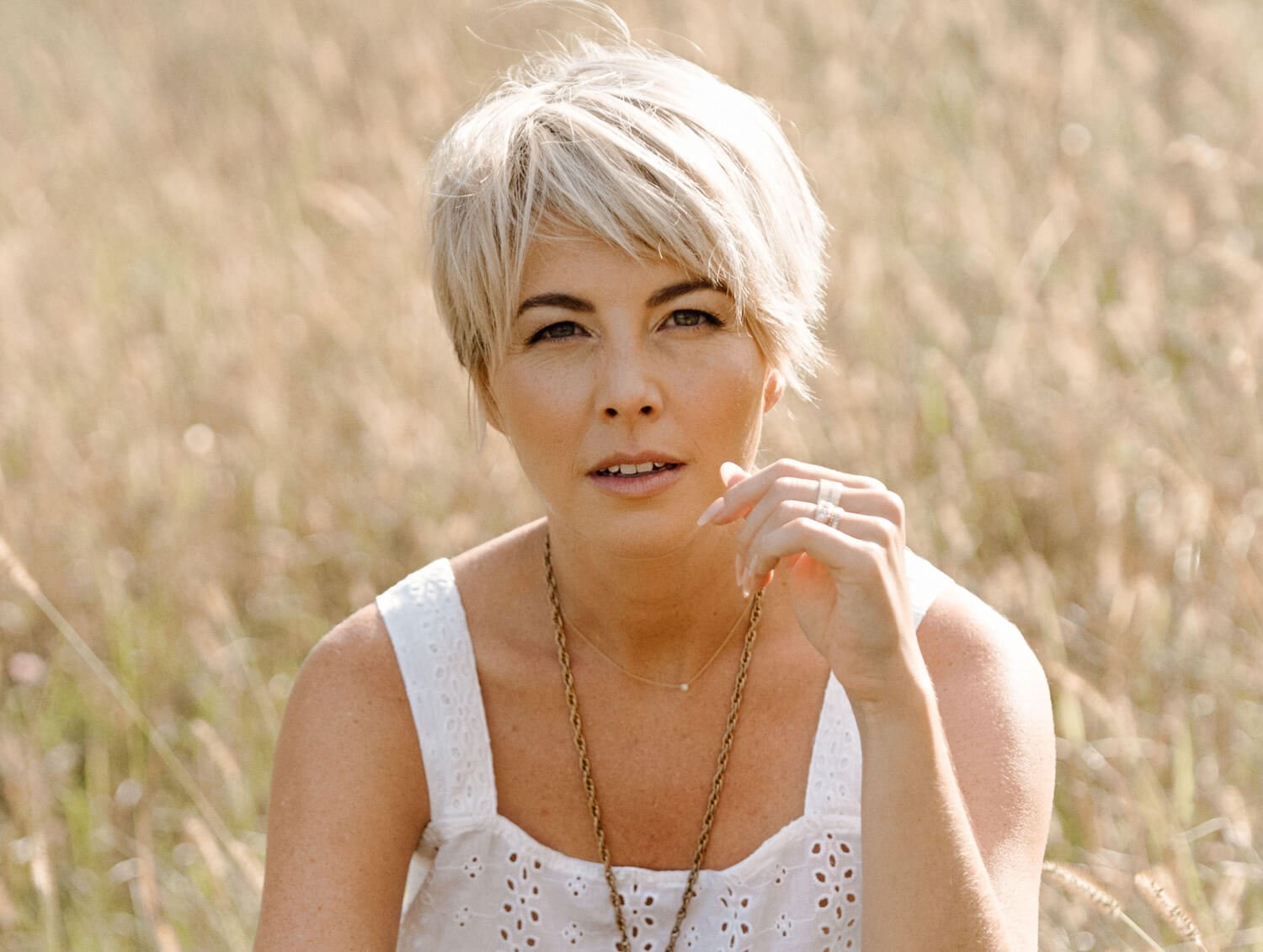
Shayna Steele
Biography
When she began the journey to what would become her newest release, Gold Dust, Shayna Steele was done making albums. Steele, perhaps one of the most sought after backup and demo vocalists in popular music (Jennifer Hudson, Kelly Clarkson, Rihanna, Bette Midler have all enlisted her) was coming off the heels of her 2019 album Watch Me Fly when 2020 and lockdown came crashing down.
“I was deeply depressed,” said Steele. “I really thought it was over. It was last call. I can make a good living singing other people’s material. I can go back to Broadway. I have a kid to raise.”
Steele’s indisputable vocal talent led her to star in Rent and Jesus Christ Superstar, and in the original production of Hairspray, whose composer Marc Shaiman regularly calls to sing any new music he’s written. Through Shaiman, she began recording demos and singing back-up, and eventually drew a reputation as the go-to for the biggest voices of pop music.
But even though she became known in certain circles for her undeniable voice and performance ability, she still had her own dreams to pursue. She began recording and releasing her own music, and in 2015, RISE (Ropeadope Records) landed the #2 spot on the iTunes Jazz Chart, gaining her a foothold in the jazz realm and eventually collaborations with celebrated jazz artists, like Grammy-winning trumpeter Chris Botti. She began performing at festivals around the world and making guest soloist appearances with symphony orchestras across the country.
Everything seemed on the right track until Steele found herself in the throes of a pandemic, unable to perform and with no desire to create. After months of paralyzing self-doubt, Steele decided to finish her music degree at Berklee College of Music that she had started at University of Southern Mississippi several years prior.
As a biracial woman who experienced a massive culture shock when moving from Germany to Biloxi, MS, as a 9-year-old with her military family, Steele has spent much of her life contemplating her identity – both outwardly and inwardly. “Moving to Mississippi was the first time I felt different. At the time, seeing a multi-racial family was out of the norm for most,” she says of the way she was viewed by adults and kids alike.
Steele left USM when New York City came calling, a move that became a pivotal point in her life and led to her finally finding her authentic self both in her career and personally as a black woman.
But in 2020, without any opportunity to perform live, Steele, unconvinced that she would ever create another album, decided to finish her degree. At Berklee, Steele dug deep into music theory and started writing and composing with fellow students. While watching coverage of the George Floyd murder and ensuing social justice movement, Steele and frequent collaborator Kamilah Marshall composed “The Bloodline” with producer/arranger David Cook (Jennifer Hudson, Maren Morris, Shoshana Bean). The experience sparked her once again to reexamine her experiences and identity as a black woman.
“I didn’t want to add to the messages of anger and rage. There was enough of that out there. With ‘The Bloodline,’ I wanted to reclaim the joy of what it means to be black, but with a heaviness to the production. We stand on the shoulders of those who came before us, all the things our ancestors did even though they were considered 3/5 of a person. The joy of black people when we get in a room together.”
The cathartic experience of writing brought hope – maybe she would make one more album. Working with Cook, Steele decided to “throw everything” at the endeavor. Gold Dust, a culmination of originals and incredibly reimagined covers from Ray Charles to Radiohead to Cole Porter, emerged, and “The Bloodline” became the first single.
Named for the rollicking, powerhouse Fleetwood Mac cover of “Gold Dust Woman” on the album, Gold Dust brought Steele back – not just to what she does, but to who she is.
A frenetic and powerful energy runs throughout the album. On the Cole Porter classic “You’d Be So Nice To Come Home To,” Steele enlisted Grammy-nominated jazz saxophonist Donny McCaslin (David Bowie) to reimagine the song with an upbeat, almost electric feel surrounding Steele’s mighty vocals.
“Faust Arp,” a Radiohead cover featuring trumpeter Philip Dizack, encapsulates tension and the ramblings of the mind. Likewise “January” begins softly and builds into a rising crescendo of sounds and textures with Steele’s laser-focused vocals cutting to the forefront, eventually chanting “We will always find our way.”
Yet through the album-making process, shared for the first time with her 10-year-old daughter Caia, Steele’s perspective started to change.
“My daughter was old enough now to be around and with me in the studio on this album. I began to realize for myself, and to tell her, ‘This is what I do. And I’m good at it.’
“It’s important for my daughter to see her mother pursue her dreams and still be a good mom. I had people in my life tell me that something would have to give, but I didn’t give into that narrative. There is a world where women can have it all.”
Fittingly, on the album closer, “A Perfect Frame,” Steele belts out the refrain, “All I want’s inside of me.”
“The darkness didn’t swallow me whole,” Steele says. “I came up from the ashes.”
Client Links
Media Assets
Press Releases
Gold Dust Album Released
April 21, 2023
Gold Dust Album Announcement; “The Bloodline” release
March 3, 2023








